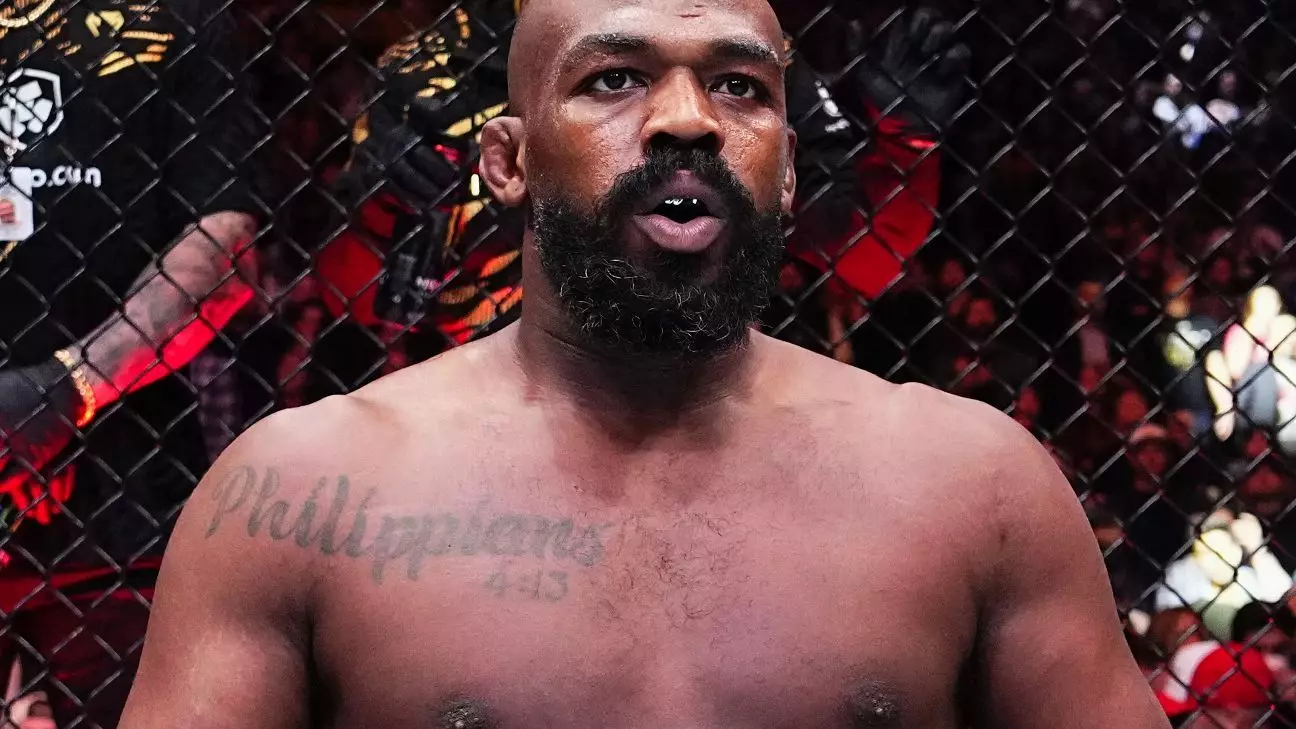Jon Jones, renowned as the greatest mixed martial artist in the history of the sport, has made an unexpected decision to retire at the age of 37, as announced by UFC CEO Dana White. This announcement, made during a press conference in Azerbaijan, has sent shockwaves through the MMA community. Jones, who was on the brink of defending his heavyweight title against interim champion Tom Aspinall, has chosen to step away from the Octagon, elevating Aspinall to undisputed champion without a fight. This abrupt conclusion to Jones’s illustrious career reflects a multitude of complexities that have defined him both in and out of the ring.
Jones’s Legacy: Unmatched Yet Flawed
From the moment Jon Jones burst onto the scene, it was clear he was a prodigious talent. At just 21, he captured the UFC 205-pound title, becoming the youngest champion in the organization’s history. Over his career, which boasts a staggering record of 28 wins and only one loss — a disqualification — his dominance was underscored by an unparalleled 16-0 record in championship fights. This level of success is what solidified his legacy. However, it is critical to engage with the contrasting facets of Jones’s career: for every accolade, there are legal troubles and controversies that have tainted his path. His notorious history of personal issues, including arrests and suspensions related to substance abuse, creates a convoluted narrative around his claim to greatness.
Compounding this narrative are the implications of the UFC’s competitive landscape. While discussing his potential matchup against Aspinall, Jones displayed a disinterest that many interpreted as a reluctance to engage with a rising star while already established in his own legacy. Despite his achievements, the notion of “ducking” an emerging champion like Aspinall highlights a contradictory aspect of his career: the inclination to protect an immovable legacy at the expense of competitive spirit.
The Fallout from His Decision
The impact of Jones’s retirement ripples far beyond his personal career. His decision has left the heavyweight division in a state of flux, with Aspinall now celebrated as a champion. While Dana White acknowledged the challenges faced by Aspinall amidst the shifting dynamics, his resolve to support the new heavyweight champion underscores the promotion’s need to pivot strategically. The anticipation for a clash between Jones and Aspinall had been termed one of the most thrilling prospects in UFC history, and its loss can’t be understated; it represents a missed opportunity not just for the fighters, but for fans longing for epic matchups.
In his remarks, White emphasized Aspinall’s willingness to fight anyone, reflecting a commendable tenacity that contrasts starkly with Jones’s more cautious approach. Aspinall seems poised to embrace the mantle of heavyweight champion, and it will be intriguing to see how he capitalizes on his status. Fighters thrive on big moments, and while Jones has often danced around potential adversaries, Aspinall is an embodiment of the aspirational competitor who is ready to seize the opportunity that emerges from Jones’s shadow.
Reflections on Greatness and Responsibility
As fans reflect on Jon Jones’s career, it is essential to view his journey through multiple lenses. Greatness in sports is often gauged not just by victories but by the narratives we construct around the individuals. Jones has undeniably contributed to a rich, complex narrative woven into the fabric of MMA, but it comes with a caveat: responsibility. His ability to influence the sport is undeniable, but it should also serve as a case study in the potential pitfalls of fame and success.
The idealized image of an athlete is one that not only excels in their craft but also manages the accompanying pressures with grace and integrity. Jones’s challenges outside the Octagon serve as a reminder that greatness can quickly become marred by personal failings. The contrast between his incredible skills as a fighter and his often tumultuous personal life leaves fans and analysts grappling with his legacy.
In the end, Jones leaves behind a legacy filled with both breathtaking achievements and troubling controversies, encapsulating the dual nature of his existence as a fighter. MMA’s evolution is shaped not just by the brilliant athletes that grace its arenas but also by their journeys, struggles, and the lasting impressions they leave behind.


Leave a Reply